
We’ve come to the end of another year in reading, folks, and as stewards of this venerable repository of literary criticism, it is once again our sacred duty to dust off the abacuses (abaci?) and tabulate the best reviewed books of past twelve months.
Yes, using reviews drawn from more than 150 publications, over the next two weeks we’ll be revealing the most critically-acclaimed books of 2019, in the categories of (deep breath): Memoir & Biography, Poetry, Sci-Fi & Fantasy, Essay Collections, Graphic Literature, Short Story Collections, Literature in Translation, Mystery & Crime, General Fiction, and General Nonfiction.
Today’s installment: Literature in Translation.
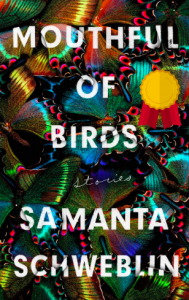
1. Mouthful of Birds by Samanta Schweblin, trans. by Megan McDowell
11 Rave • 14 Positive • 3 Mixed
“These 20 stories display the full range of Schweblin’s tone and effects. These are funny stories and terribly sad ones; there are some that feel gleaned from outtakes to ‘Rosencrantz and Guildenstern are Dead,’ while others would make Stephen King tip his hat in appreciation … This is an extraordinarily well-ordered collection … Here at last is why Schweblin’s tales are so piercing and make such a lasting mark. Throughout the book people question their actions. They wonder about whether what they’re doing is right. If the order in which they tell their story is accurate. It’s hard to think of a story collection this strange that feels so much like life.”
–John Freeman (The Boston Globe)
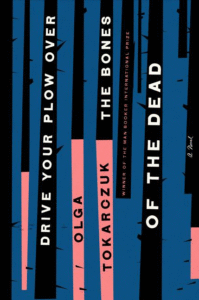
2. Drive Your Plow Over the Bones of the Dead by Olga Tokarczuk, trans. by Antonia Lloyd-Jones
17 Rave • 3 Positive • 1 Mixed
“This mixture of graphic realism…and broad speculation are characteristic of the style of Olga Tokarczuk, one of the most distinctive and original voices in contemporary European literature … Tokarczuk’s singular achievement is to show how the marginalised, the disregarded, the despised have access to ways of knowing that are outside the perimeters of conventional thinking … Like her heroine, who sees everything as connected to everything else and every event bound up by a ‘complex cosmos of correspondences,’ Tokarczuk has a compelling capacity to seek out parallels or juxtapose stories or experiences that constantly draw the reader off trail … Tokarczuk has every reason too to be grateful for the linguistic friendship of another translator Antonia Lloyd-Jones who has once again done a remarkable job of capturing the uncanny distinction of Tokarczuk’s prose in English. There is much to admire in this book and even more to learn”
–Michael Cronin (The Irish Times)
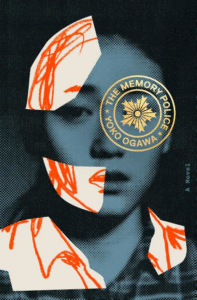
3. The Memory Police by Yoko Ogawa, trans. by Stephen Synder
13 Rave • 9 Positive
“The Memory Police is finely translated by Stephen Snyder and reaches English-language readers as if sent from the future. Ogawa’s weightless and unadorned prose weaves a world where memory is always associative; we remember not just the object itself but what it conjures … The Memory Police doesn’t lend itself to easy analysis; we cannot say the state is Mao’s China, Pol Pot’s Cambodia or Nazi Germany, or wrap the novel neatly around any specific historical amnesia … While a reader may feel the need to interpret it solely as a political novel, the book also reads, accurately and passionately, as a profound meditation on dying … When the story arrives at its fruition, its power seems to come out of the thin air and thin existence in which its characters are trapped. Yet the force of its ending is cumulative and phenomenal, and taps into the very source and meaning of memory. The Memory Police is a masterpiece … It is a rare work of patient and courageous vision.”
–Madeleine Thien (The Guardian)
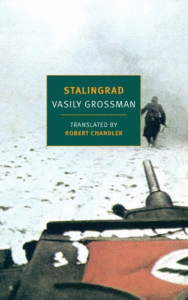
4. Stalingrad by Vasily Grossman, trans. by Robert Chandler and Elizabeth Chandler
9 Rave • 11 Positive
“Stalingrad shows a writer who was a less adamant critic of the Soviet project than a reader of Life and Fate might think. It also presents some of the finest examples of Grossman’s prose, an argument to read him not only as a fervent critic of totalitarianism, but as a deeply compassionate writer with an extraordinary gift for portraying psychological complexity and sensory detail … like Tolstoy, he can paint a vivid picture of almost any sort of person … Stalingrad is an extreme case of a ‘loose baggy monster,’ but the lesser sections—for example, chapters on a wartime coal mine, added at the behest of editors—fade from memory quickly, while Grossman’s exquisite sensory details linger … Stalingrad is, among other things, a testament to the human capacity to rally the bravery, altruism, and resilience needed to bring the world back from the brink of destruction.”
–Sophie Pinkham (The New Republic)
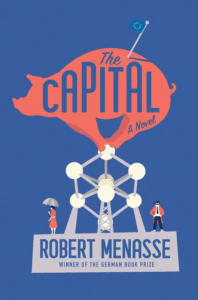
5. The Capital by Robert Menasse, trans. by Jamie Bulloch
9 Rave • 10 Positive • 3 Mixed
“If you tasked an excellent writer with turning a tall stack of recent issues of The Economist into a novel, you might get The Capital. Somehow I mean this as high praise … Perhaps what we have in The Capital is a great murder mystery … It’s an unusual murder story, though, because the suspense lies not in discovering the identity of the assassin (we follow him as he goes on the lam) but the identity of the dead man. You come to suspect that the murder is a kind of MacGuffin, that maybe it doesn’t matter at all. I enjoyed The Capital so much that I could keep going like this. It’s possible this is a great Holocaust-minded novel for a new millennium … The translation, by Jamie Bulloch, is adroit. Yet The Capital made me want to learn to read in German, where it is surely even better. This is a baggy book, with room for everything Menasse wants to put into it. It has its share of longueurs. But there is also pointed writing not just about politics but about subways and orgasms and woolly underwear and air conditioning and retirement homes … this novel evidences a sharp awareness of the forces remaking European life, with Brexit as only one example.”
–Dwight Garner (The New York Times)
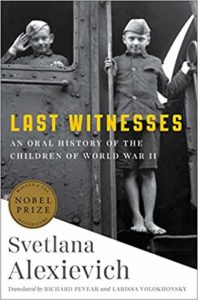
6. Last Witnesses: An Oral History of the Children of World War II by Svetlana Alexievich, trans. by Richard Pevear and Larissa Volokhonsky
9 Rave • 6 Positive • 1 Mixed
“Oral history is an important research tool, but it has not often been treated as literature … Alexievich transforms the genre, turning it into literature through her editing and orchestration. That word is not idly chosen; there is a distinctly musical flow to the way she groups speakers and subjects … Her speakers echo one another’s experiences at points, although they sharply split off at others, and their personalities can emerge with startling clarity … recollections are so deeply etched that they appear uncorrupted by passing time; in them their protagonists are forever children … the horror and misery seldom let up. The memories, often recounted in fastidious detail, are wildly sad one by one and emotionally overwhelming in aggregate. The book is guaranteed to leave any reader a sodden mess. If the most nightmarish recollections do not summon tears, those will be brought forth by the instances of kindness.”
–Luc Sante (Bookforum)
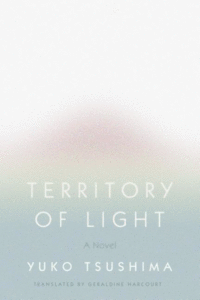
7. Territory of Light by Yuko Tsushima, trans. by Geraldine Harcourt
6 Rave • 9 Positive
“… the brilliance of Territory is that Tsushima’s skilled attention to her narrator’s inner struggles ultimately asks the reader to feel empathy not just for one woman but also for a whole strata of women living with little societal support … the episodes of the narrator’s life are, when read carefully, far from boring. There is something deeply seductive about being drawn into the intimate thoughts of a woman who otherwise would tell them to no one … Tsushima’s gift is to provide insight into the mother’s difficulties without rendering her protagonist simply an oppressed victim.”
–Rowan Hisayo Buchanan (The Atlantic)
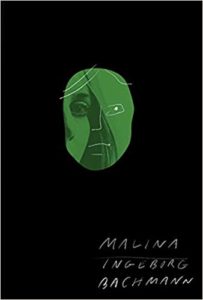
8. Malina by Ingeborg Bachmann, trans. by Philip Boehm
8 Rave • 4 Positive • 1 Mixed
“… a portrait, in language, of female consciousness, truer than anything written since Sappho’s Fragment 31 … It’s a difficult book in which to find your footing. There are all sorts of references in it, to Schoenberg, to Vienna, to historical events, not all of which the reader will catch. But once you’re in, you’re in. You’re not decoding. Toward the end, you’re racing along, deep in the rhythms of the narrator’s thoughts, which are bone-true and demonically intelligent—and I mean it would be a real burden to be that mentally acute, it can’t go well for a person to know that much, it can only lead to ill health, drinking, and despair—and then the novel careens over a cliff … [The narrator] is steeped in a broad lexicon of existential issues that burn her like lit cigarettes. She’s also very funny, especially in the third section of the book, when her mind goes into overdrive.”
–Rachel Kushner (The New Yorker)
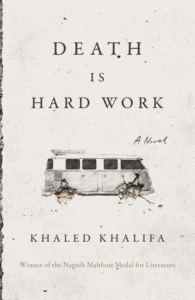
8. Death is Hard Work by Khaled Khalifa, trans. by Leri Price
8 Rave • 3 Positive • 1 Mixed
“… astonishing …The journey recalls Faulkner’s As I Lay Dying, the long last ride of Addie Bundren; like Faulkner too, Khalifa employs a shifting array of voices and reflections, moving from perspective to perspective, present to past and back again. The effect is a persistent deepening, as stories are introduced and then revisited, details added through the play of memory … The power of the novel… is that it unfolds within a human context, which pushes against and resists the prevailing social one. What other option do we have?”
–David L. Ulin (The Los Angeles Times)
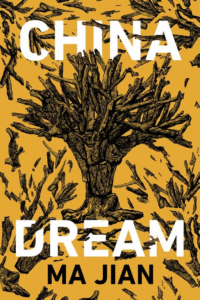
10. China Dream by Ma Jian, trans. by Flora Drew
7 Rave • 5 Positive
“Ma’s writing echoes writers such as Borges and Kafka in its absurdism, but its imagery is also filmic … It is a style which suits the modern China it depicts, matching both its concrete reality and its nightmarish illogicality … the novel’s brevity is also one of its charms … The vignettes which form each chapter offer brief but rich visions of the protagonist’s descent into madness, and the novel has a power, literary and political, disproportionate to its length … a book which compellingly reveals the paranoia of the modern Chinese state.”
–Jonathan Chatwin (Asian Review of Books)
*
Our System: RAVE = 5 points • POSITIVE = 3 points • MIXED = 1 point • PAN = -5 points


